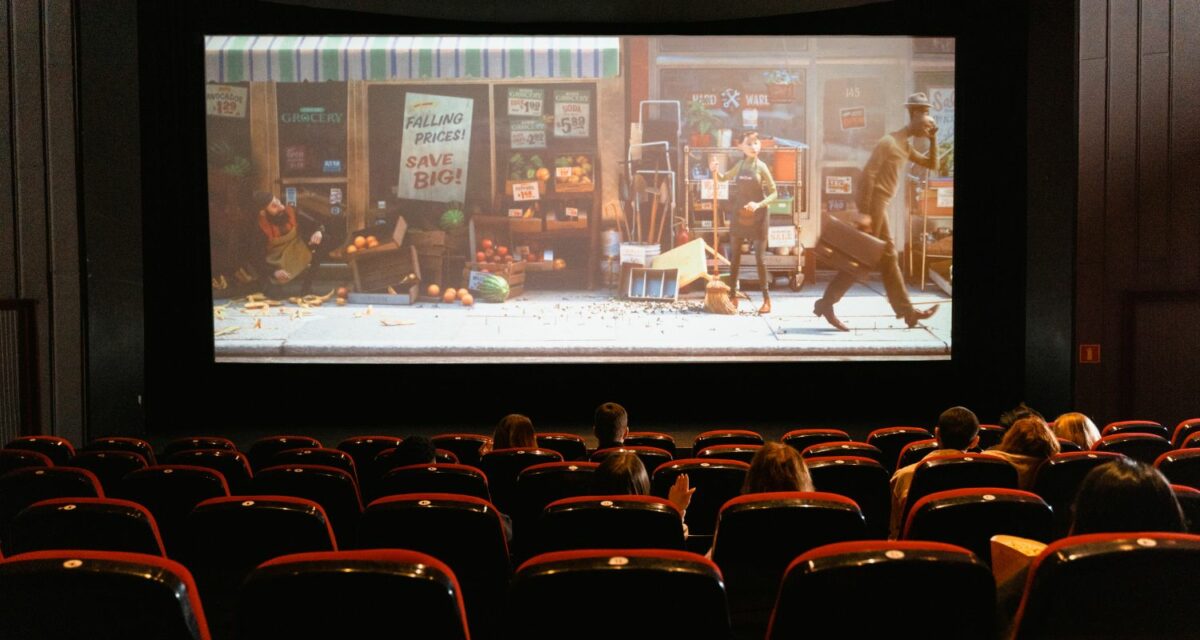- Top Questions to Ask During a Hearing Aid Repair Appointment - September 16, 2025
- The Role of Assistive Listening Devices in Workplaces - September 8, 2025
- Why Tinnitus Feels Louder at Night and How to Manage It - August 26, 2025
Eager viewers are going to the movies again. While this is undoubtedly great news for movie theaters and consumers alike, enjoying the most recent releases may pose a hidden danger to your hearing: elevated noise levels.
Incorporating surround sound, action-packed effects, and the heightened viewer reaction that accompanies loudness, theaters and films have continually become louder – frequently to unsafe levels.
How loud is too loud?
When attempting to understand unsafe noise levels, it is essential to comprehend how sound levels affect our hearing. Tiny sensory cells detect the vibrations of sound waves in the air, allowing our hearing to detect various noises. When sound is loud, the size of this vibration may strain and possibly irreparably harm sensory cells, which are incapable of healing. More damaged cells result in diminished hearing.
Noise can cause hearing loss faster if it is louder. The unit for measuring sound loudness is the decibel, abbreviated “dB.” The decibel scale is exponential. Therefore 80 dB is ten times as loud as 70 dB. Normal conversation occurs at around 75 decibels. Noise levels below 80 decibels are not considered hazardous to human hearing, while noise levels beyond 80 decibels may cause irreversible hearing loss.
A regulation for occupational safety dictates that 85 decibels of noise, or the sound of a busy manufacturing floor, will induce hearing loss after eight hours of exposure. After that, safe exposure times decrease dramatically. Hearing loss may develop in as little as 45 minutes at 95 dB, around the noise level of riding a motorbike. The noise of a rock concert, around 105 decibels, causes permanent hearing loss after just five minutes. A sound that exceeds 120 decibels causes immediate hearing loss.
At the Cinema
With amplified sound systems and large protected images, movie theatres are designed to make viewing an engaging, immersive experience. But research into the loudness levels in movie theaters has shown that this experience may be hazardous to our hearing.
Using a sound meter to measure decibels in a sample of cinemas and various film genres, a large number of films routinely recorded over 85 dB. Children’s films had reduced sound levels but did not avoid loud crescendos above 100 dB. Typically, sound levels in dramatic performances hovered at 90 to 95 dB, with occasional outbreaks of louder noise. Action films reported considerably stronger levels, with noise peaks in the range of 100-105 dB and harsher sounds maintained for longer than other genres.
The volume control varies from theatre to theatre. Some movie venues will intentionally minimize sound exposure to safeguard their filmgoers. But that is increasingly the exception rather than the rule.
How to protect yourself
Remember that no film is so good that it is worth endangering your health.
You can also take precautions while attending the movies. The measurement of sound volume does not need the use of complex devices – it might be as simple as downloading a free app on your mobile device. Free or low-cost accurate sound meter applications are available for various platforms and may assist you in making intelligent judgments over whether to protect your hearing.
Carry hearing protection. If you often attend noisy events such as movies or concerts, you may consider purchasing custom, reusable earplugs for more noise protection and a more comfortable fit.
A pair of foam earplugs in a pinch will suffice to decrease the most dangerous noise levels to more tolerable ones.
Home cinemas offer similar dangers.
Movie theatres may not be the only location where our pleasure may damage us. Faced with a lack of entertainment, many of us built home cinemas and sound systems during the pandemic. With more pervasive sound and a smaller living area, it might be easier to surpass safe volume levels at home.
Luckily, this is an environment you can control. Use a sound level meter to determine how loudly you often watch movies and television and to adjust the volume settings in your house so that they do not cause hearing damage. The volume levels you employ with headphones are equally critical but more challenging to manage, where sound transmitted directly to the ear canal may cause rapid damage if it is too loud. Observe safe listening practices.
If you think you might have hearing loss from overexposure to noise, we’d like to talk to you. Contact us today to see how we can help.

